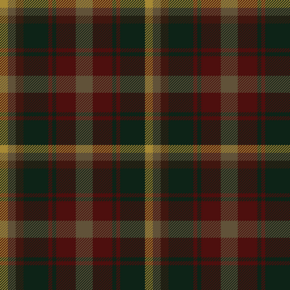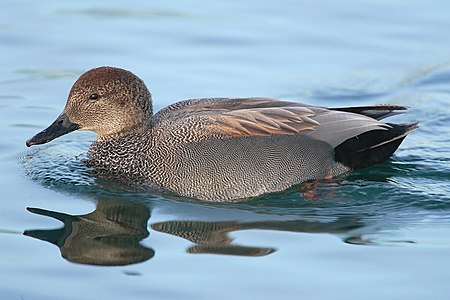Portal:Canada
| Showcase | Content | Contributing |
Introduction
Canada is a country in North America. Its ten provinces and three territories extend from the Atlantic Ocean to the Pacific Ocean and northward into the Arctic Ocean, making it the world's second-largest country by total area, with the world's longest coastline. Its border with the United States is the world's longest international land border. The country is characterized by a wide range of both meteorologic and geological regions. It is a sparsely inhabited country of 40 million people, the vast majority residing south of the 55th parallel in urban areas. Canada's capital is Ottawa and its three largest metropolitan areas are Toronto, Montreal, and Vancouver.
Canada is a parliamentary democracy and a constitutional monarchy in the Westminster tradition. The country's head of government is the prime minister, who holds office by virtue of their ability to command the confidence of the elected House of Commons and is "called upon" by the governor general, representing the monarch of Canada, the ceremonial head of state. The country is a Commonwealth realm and is officially bilingual (English and French) in the federal jurisdiction. It is very highly ranked in international measurements of government transparency, quality of life, economic competitiveness, innovation, education and gender equality. It is one of the world's most ethnically diverse and multicultural nations, the product of large-scale immigration. Canada's long and complex relationship with the United States has had a significant impact on its history, economy, and culture.
A developed country, Canada has a high nominal per capita income globally and its advanced economy ranks among the largest in the world, relying chiefly upon its abundant natural resources and well-developed international trade networks. It is recognized as a middle power for its role in international affairs, with a tendency to pursue multilateral and international solutions. Canada's peacekeeping role during the 20th century has had a significant influence on its global image. Canada is part of multiple international organizations and forums. (Full article...)
Featured article -
Juno and or Juno Beach was one of five beaches of the Allied invasion of German-occupied France in the Normandy landings on 6 June 1944 during the Second World War. The beach spanned from Courseulles, a village just east of the British beach Gold, to Saint-Aubin-sur-Mer, and just west of the British beach Sword. Taking Juno was the responsibility of the First Canadian Army, with sea transport, mine sweeping, and a naval bombardment force provided by the Royal Canadian Navy and the British Royal Navy as well as elements from the Free French, Norwegian, and other Allied navies. The objectives of the 3rd Canadian Infantry Division on D-Day were to cut the Caen-Bayeux road, seize the Carpiquet airport west of Caen, and form a link between the two British beaches on either flank. (Full article...)
Featured biography -
Pamela Margaret McConnell (February 14, 1946 – July 7, 2017) was a Canadian politician who served on Toronto City Council. She was first elected to the Metro Toronto Council in 1994, representing a series of downtown Toronto wards until 2017. She served as a deputy mayor of Toronto, representing Toronto and East York from 2014 to 2017. (Full article...)
Selected panorama -
Woody Point, Western Newfoundland. Panorama of the Gros Morne National Park with the Tablelands, overlooking Bonne Bay
Credit: Tango7174
National symbol -

Regional tartans of Canada are represented by all Canada's provinces and territories having a regional tartan, as do many other regional divisions in Canada. Tartans were first brought to Canada by Scottish settlers; the first province to adopt one officially was Nova Scotia in 1956 (when registered at the Court of the Lord Lyon; adopted by law in 1963), and the most recent province was Ontario, in 2000. Except for the tartan of Quebec, all of the provincial and territorial tartans are officially recognized and registered in the books of the Court of the Lord Lyon, King of Arms of Scotland. (Full article...)
Selected vital article -
The politics of Canada functions within a framework of parliamentary democracy and a federal system of parliamentary government with strong democratic traditions. Canada is a constitutional monarchy where the monarch is head of state. In practice, executive authority is entrusted to the Cabinet, a committee of ministers of the Crown chaired by the Prime Minister of Canada that act as the executive committee of the King's Privy Council for Canada and are responsible to the democratically elected House of Commons. (Full article...)
Selected picture -
Current events
- April 12, 2024 – War in Sudan
- Canada pledges $132.2 million dollars to Sudan to help people affected by the country's ongoing humanitarian crisis. (Global News)
- April 1, 2024 – Israel–Hamas war
- Seven volunteers from the World Central Kitchen, including six British, Polish, Australian and Palestinian nationals and a dual American-Canadian citizen, are killed in an Israeli airstrike south of Deir el-Balah. (Al Jazeera)
- March 31, 2024 – Haitian crisis
- Canada deploys 70 members of its armed forces to Jamaica to train peacekeepers for a future intervention in Haiti. (CBC News)
- March 9, 2024 – Israel–Hamas war
- Canada and Sweden resume funding for UNRWA, which had been suspended following the UNRWA October 7 controversy. (BBC News)
- March 6, 2024 – Killing of the Wickramasinghe family
- A Sri Lankan family, of four children and their mother, are killed with the father injured in a mass stabbing at a residence in the suburb of Barrhaven, in Ottawa, Canada. A young man is arrested. (CBOT-DT)
- February 28, 2024 –
- The Canadian government releases its report into the high-profile firings of two scientists from the National Microbiology Laboratory in Winnipeg, Manitoba, in 2021, stating that the pair worked closely and covertly with the Chinese government. (National Post)
Did you know -

- ... that the Aubinadong River in Ontario, Canada, was an indigenous canoe route and is still used for canoe camping as its main recreational activity?
- ... that jazz singer Judi Singh's mother and father were, respectively, among the earliest Black and Sikh settlers of Alberta, Canada?
- ... that Gil Kim played professional baseball in the Netherlands, China, Australia, Spain, and Venezuela, scouted in Mexico and the Dominican Republic, and coaches in Canada?
- ... that Sheila Egoff, Canada's first professor of children's literature, returned to her library work immediately after retirement?
- ... that John Hutchison, in his role as Mayor of Toronto, signed the city's bid to become the capital of the Province of Canada?
- ... that La Poutine Week is the world's largest poutine festival, with 700 restaurants serving 350,000 people?
- ... that ethnic broadcasting pioneer Shushma Datt was the first Canadian woman to obtain a CRTC broadcast licence?
Featured list -
The Parliament of Canada is the legislative body of the government of Canada. The Parliament is composed of the House of Commons (lower house), the Senate (upper house), and the sovereign, represented by the governor general. Most major legislation originates from the House, as it is the only body that is directly elected. A new parliament begins after an election of the House of Commons and can sit for up to five years. The number of seats in parliament has varied as new provinces joined the country and as population distribution between the provinces changed; there are currently 338 House MPs and 105 Senators (when there are no vacancies). (Full article...)
Main articles
Associated Wikimedia
The following Wikimedia Foundation sister projects provide more on this subject:
-
Commons
Free media repository -
Wikibooks
Free textbooks and manuals -
Wikidata
Free knowledge base -
Wikinews
Free-content news -
Wikiquote
Collection of quotations -
Wikisource
Free-content library -
Wikiversity
Free learning tools -
Wikivoyage
Free travel guide -
Wiktionary
Dictionary and thesaurus































